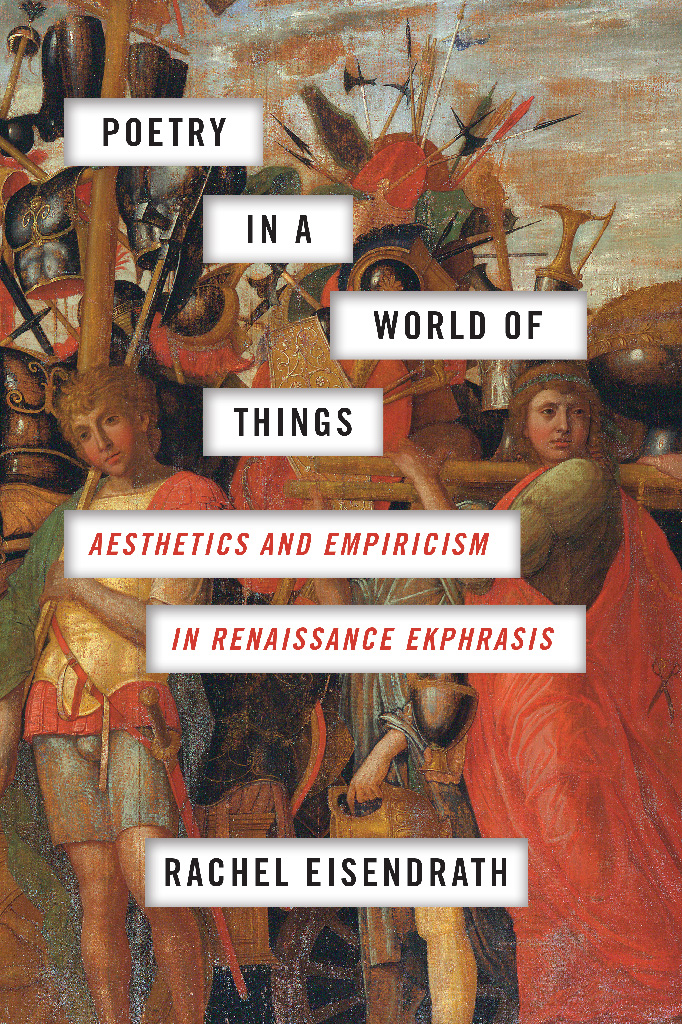
Poetry in a World of Things
Poetry in a World of Things
Aesthetics and Empiricism in Renaissance Ekphrasis
Rachel Eisendrath
The University of Chicago Press
CHICAGO & LONDON
The University of Chicago Press, Chicago 60637
The University of Chicago Press, Ltd., London
2018 by The University of Chicago
All rights reserved. No part of this book may be used or reproduced in any manner whatsoever without written permission, except in the case of brief quotations in critical articles and reviews. For more information, contact the University of Chicago Press, 1427 East 60th Street, Chicago, IL 60637.
Published 2018
Printed in the United States of America
27 26 25 24 23 22 21 20 19 18 1 2 3 4 5
ISBN -13: 978-0-226-51658-5 (cloth)
ISBN -13: 978-0-226-51661-5 (paper)
ISBN -13: 978-0-226-51675-2 (e-book)
DOI : 10.7208/chicago/9780226516752.001.0001
The University of Chicago Press gratefully acknowledges the generous support of Barnard College toward the publication of this book.
Library of Congress Cataloging-in-Publication Data
Names: Eisendrath, Rachel, author.
Title: Poetry in a world of things : aesthetics and empiricism in Renaissance ekphrasis / Rachel Eisendrath.
Description: Chicago ; London : The University of Chicago Press, 2018. | Includes bibliographical references and index.
Identifiers: LCCN 2017049043 | ISBN 9780226516585 (cloth : alk. paper) | ISBN 9780226516615 (pbk. : alk. paper) | ISBN 9780226516752 (e-book)
Subjects: LCSH : European poetryRenaissance, 14501600History and criticism. | Poetry, Modern15th and 16th centuriesHistory and criticism. | Ekphrasis. | Spenser, Edmund, 1552?1599. Faerie queene. Book 3. | Marlowe, Christopher, 15641593. Hero and Leander. | Shakespeare, William, 15641616. Rape of Lucrece. | Petrarca, Francesco, 13041374Criticism and interpretation.
Classification: LCC PN 1181 . E 57 2018 | DDC 809.1/031dc23
LC record available at https://lccn.loc.gov/2107049043
 This paper meets the requirements of ANSI/NISO Z 39.481992 (Permanence of Paper).
This paper meets the requirements of ANSI/NISO Z 39.481992 (Permanence of Paper).
Contents
What a delightful romp this life would be, writes Laurence Sterne, if it were not forand the humor emerges when the subsequent list of vexations goes on and on, ranging from debts to melancholy to large jointures. Writing these acknowledgments in the closing days of 2016, I might reverse Sternes formula: What a wretched slog my life would be, I might say, if it were not forand provide the list below of people to whom I owe, in no small way, the very possibility of my mental life and certainly my happinesses.
Thank you, my teachers, mentors, and colleagues near and far. Thank you, Bradin Cormack, for your exceptional intellect, expansive imagination, and great generosity. Thank you, Michael Murrin, for your wistful and robust love of literary history. Thank you, Joshua Scodel, for your learning, allergy to pretension, and profound sense of decency. Thank you, Victoria Kahn, for your intellectual perspicuity, and thank you so very much for reading everything. Thank you, Laura Slatkin, for your delicacy of mind and heart. Thank you, Caryn OConnell, generous fellow thinker, fellow reader, fellow writer. Thank you, Marc Fumaroli, for your scholarly vision. Thank you, Timea Szll, general of the good army, for your humane kindness, humor, and insight. Thank you, Christopher Baswell, for your erudition and for the delight of your company. Thank you, Peter Platt, for your steady guidance. Thank you, Lisa Gordis, caring and meticulously thoughtful superhero. Thank you, Achsah Guibbory, warm friend and discerning mentor. Thank you for your boundless support and kindness, Kim F. Hall, Anne Lake Prescott, Saskia Hamilton, Lydia Goehr, Ross Hamilton, Margaret Vandenburg, Mary Gordon, and Julie Crawford. Thank you, for reasons that I cannot articulate here, all my colleagues at Barnard and Columbia, especially Monica Miller, Jennie Kassanoff, James Basker, Pamela Cobrin, Patricia Denison, William Sharpe, Yvette Christians, Helene P. Foley, William B. Worthen, James Shapiro, and Jean Howard. With extra gratitude for your comments on chapter drafts, thank you, Nancy Worman, Alan Stewart, Molly Murray, and Kathy Eden. From the larger academic world, many scholars generously shared knowledge, provided encouragement, and, in many cases, read work in progress: thank you so very much, William Allan Oram, Froma I. Zeitlin, Heather James, Ayesha Ramachandran, Melissa E. Sanchez, Paul Kottman, Richard Meek, Lynn Enterline, Lauren Silberman, Jeff Dolven, Michael Witmore, Phillip Usher, Richard Strier, Maureen McLane, Robert W. Ulery Jr., Judith H. Anderson, Scott L. Newstok, Margreta de Grazia, and Heather Dubrow. From early in my life, thank you, Bruce Gagnier; thank you, Lisa Pence; thank you, Marty Dutcher.
Thank you, educational institutions, academic presses, libraries, and museums, which hold out for a more humane future. Thank you, Barnard College, especially Provost Linda Bell. Thank you, the University of Chicago. Thank you, St. Johns College. Thank you, the New York Studio School. Thank you, Harvard and Radcliffe Colleges. Thank you, the American Philosophical Society, Folger Institute, Mellon Foundation, and the Schoff Fund of the Columbia University Seminars, all of which provided financial support for this project. Thank you, the archivists and curators at the Library of Congress, Huntington Library, Houghton Library, Folger Shakespeare Library, Marsh Library, British Library, Metropolitan Museum of Art, British Museum, Hampton Court Palace, and Morgan Library. Thank you, Alan G. Thomas and Randolph Petilos at the University of Chicago Press, none better. Thank you, Susan Karani and India Cooper, expert manuscript editor and copy editor. Thank you Thomas Hibbs, who worked on the index, and Andrew Miller, who skillfully helped check the proofs. And thank you, anonymous readers of this manuscript, for your erudition and sympathy, and thank you for understanding so well the underlying stakes of this book.
Thank you, the participants in numerous conferences and workshops both in the United States and abroad, especially the Sixteenth Century Society, Shakespeare Association of America, Columbia University Seminars, and the International Spenser Society, who listened to and remarked on parts of this project as it developed.
Thank you, my students at Barnard College, who arent of course mine at all, especially the students of the Renaissance Colloquium, Shakespeare I, and the Words and Pictures Senior Seminar. Thank you, Mae Frances White, who has been reading and discussing ancient Roman history with me for so long that, really, at this point, you belong in the next paragraph.
Thank you, my friends. Thank you, very dear Hisham Matar, Charles Perkins, Valerie Cornell, Susan Tombel, John McGrath, Lucia Finotto, and Gael Mooney. Thank you, for more than I know how to reckon, O. H. K.
Thank you, my family. Thank you, Aaron and Arpoo Eisendrath, Idris and Tao Eisendrath, Craig Eisendrath, Roberta Spivek, Marvin Garfinkel. Thank you, the Gonzalez family. Thank you, the beloved memory of Marty Sternin, Betty and Stanley Kalish, and Lucy Eisendrath.
Thank you, my partner, Allyson Celeste Gonzalez, who walked with me over the Manhattan Bridge. To you, all.
Finally, thank you, my brilliant, defiant, and loving mother, Betsy Eisendrath, to whom I dedicate this book, in gratitude for a lifetime of talk and laughter.
Next page
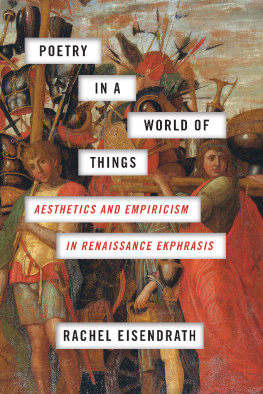

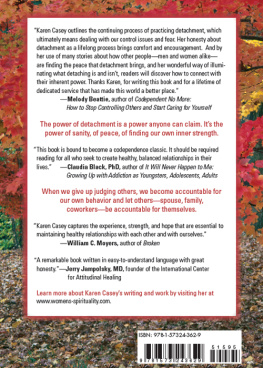
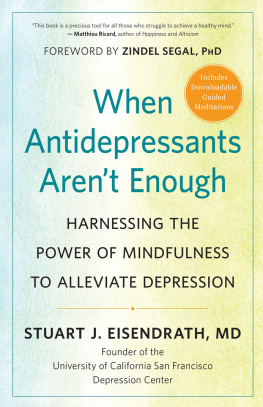

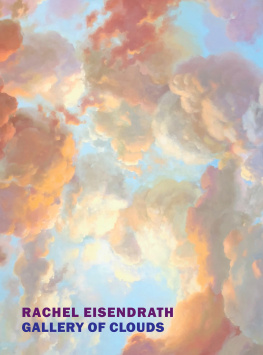
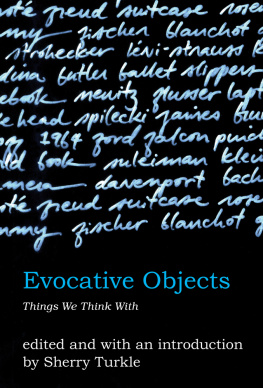
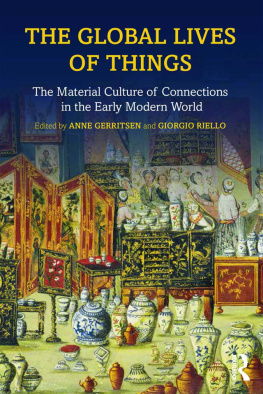
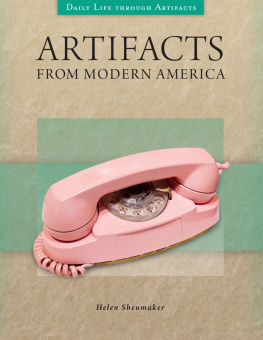
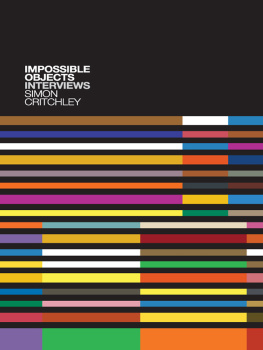

 This paper meets the requirements of ANSI/NISO Z 39.481992 (Permanence of Paper).
This paper meets the requirements of ANSI/NISO Z 39.481992 (Permanence of Paper).